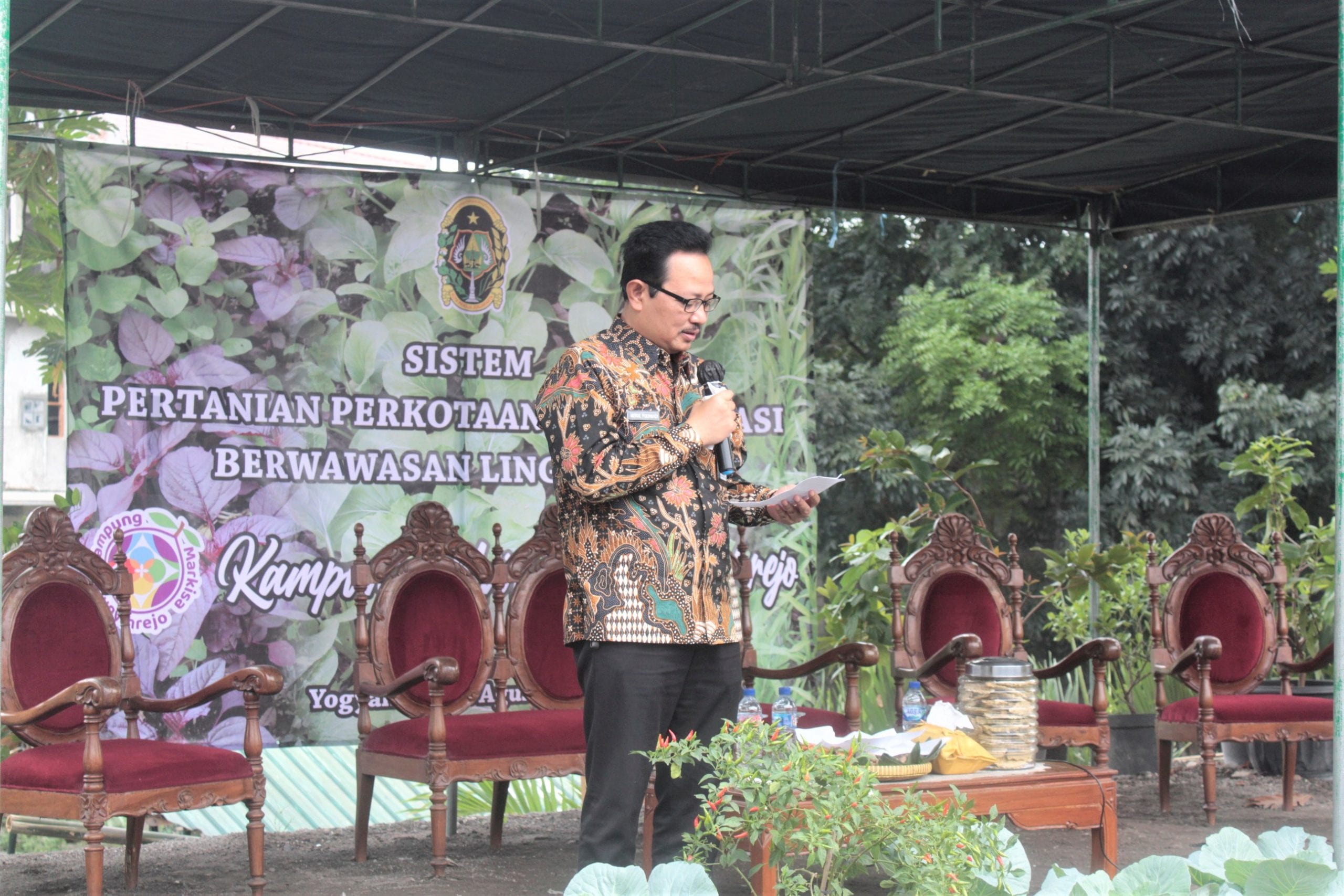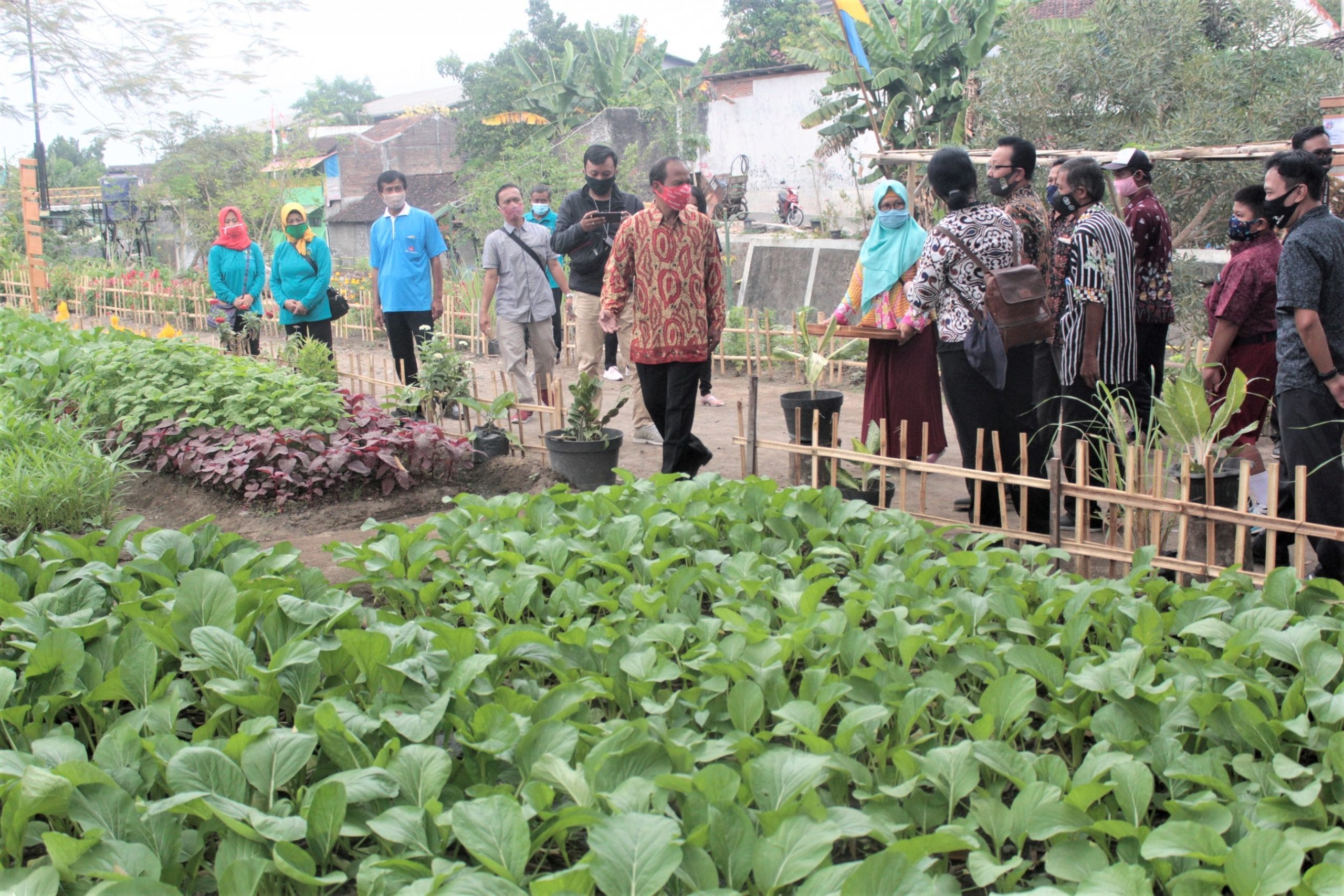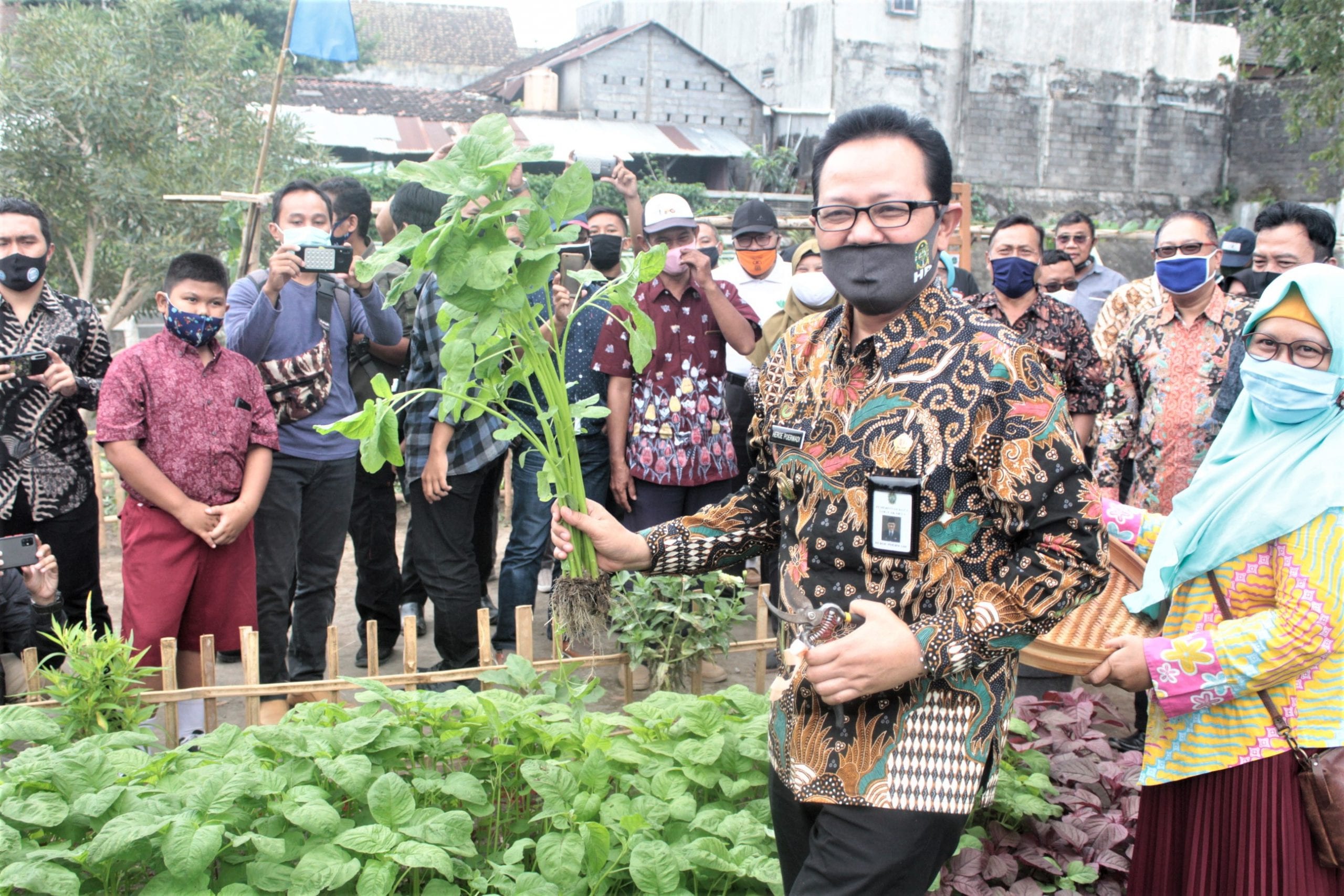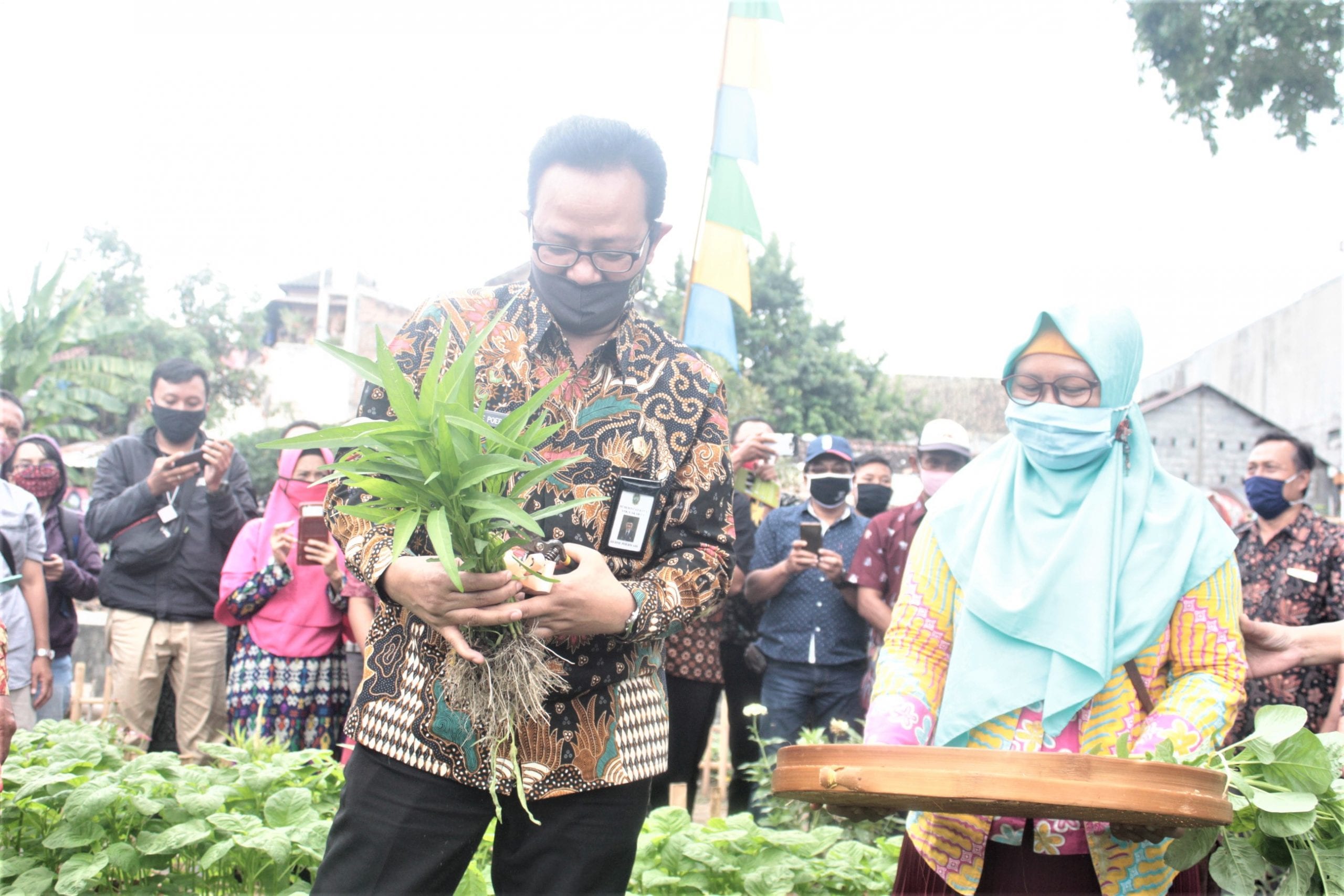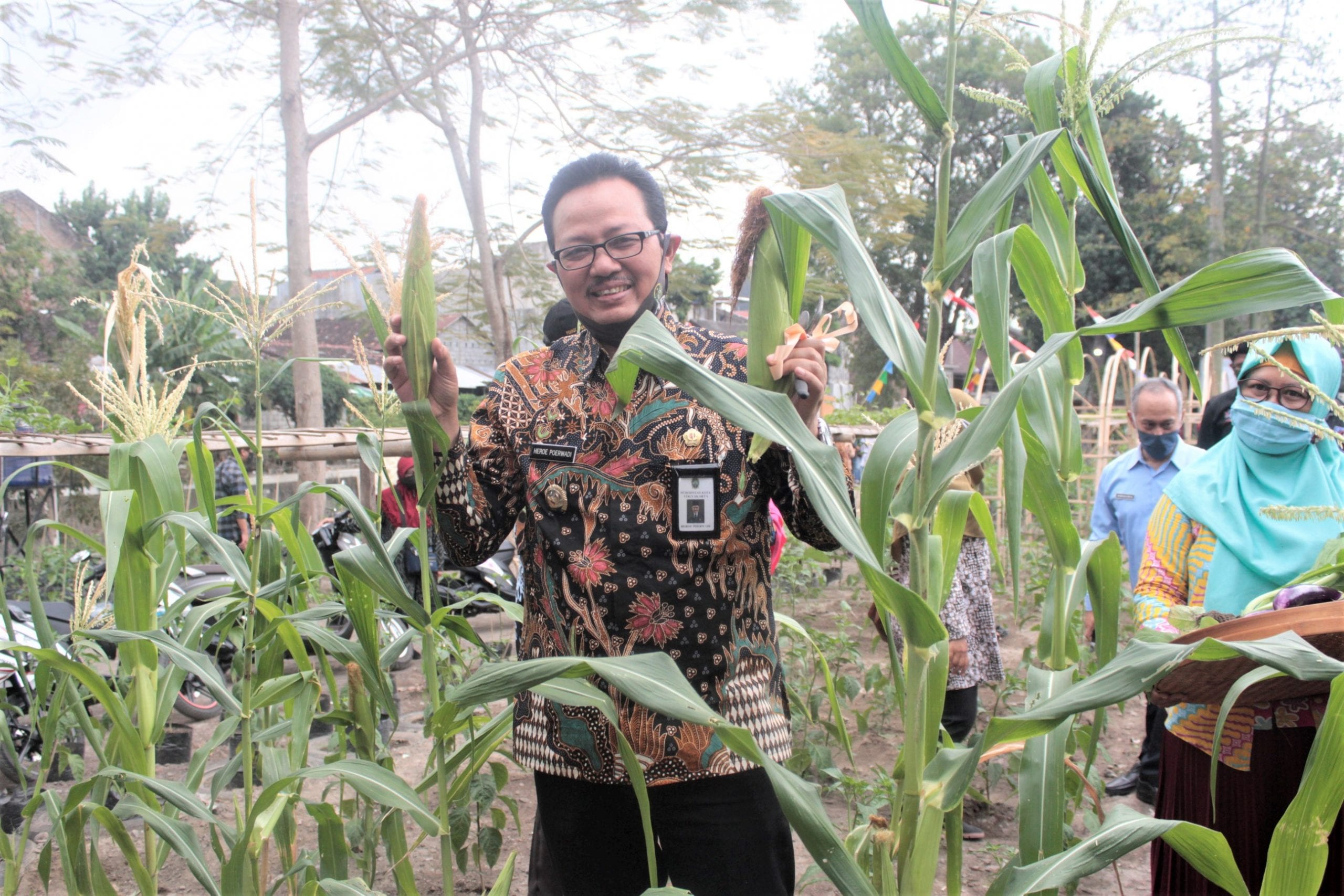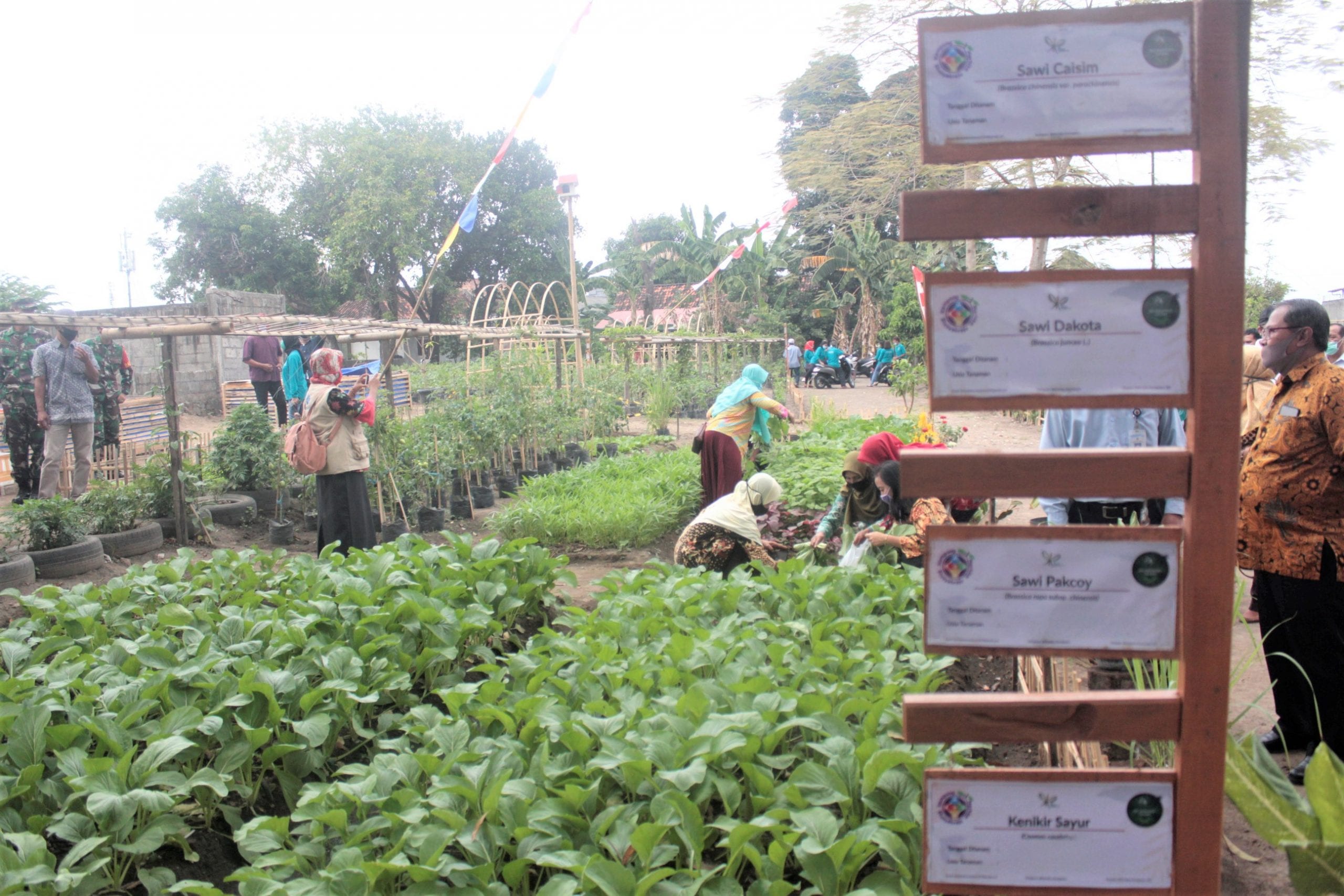The population growth and the urbanization stream which are hard to handle are making the farmland changing shift into the industrialized, commercialized, or settlement area increased. The decreasing farmland impacts the food security of the urban area. This condition encourages the government and urban residents to fulfill the food needs independently. It also encourages to fix the environmental condition to create a healthy and quality environment.
One of the phenomena which are booming lately is an urban farm which utilizes the limited land. The urban farm is the key to establish a continual food system for urban residents. Furthermore, this could help to handle the food insecurity in the future. Moreover, the urban farm is not limited to the horticulture plant, but also with integrated cultivation freshwater fish, animal husbandry, or other fields through utilizing empty yards. This action would lead the family to increase their economy, establish healthy nutrition, and prosperous.
This urban farm had been developed by the resident of Kampung Markisa Blunyahrejo, Karangwaru, Tegalrejo, Yogyakarta. This farm is situated in the ±4.500 m² land, Kampung Markisa Blunyahrejo establishes the urban farm and catfish cultivation as their identity. Kampung Markisa develops an urban farm that is not limited to vegetables like mustard greens (variant dakota, caisim, and pakcoy); kenikir, kale, spinach, and corn, but also fruits and empon-empon. Moreover, Kampung Markisa also utilizes the organic trash which is created to catfish’s food on the cultivation pond.
“Since the last February, we have prepared this empty land for cultivation. We also got support for the crop’s seeds. And now, we could primely harvest.” said drh. Pratita as the Lead of the Blunyahrejo Neighborhood Association. The prime harvest is held on Tuesday (4/8) at the riverside of the Buntung river which is utilized as productive farmland. It also symbolizes the creation of the Environmental Urban Farm System. “We hope that this farmland could become bigger and independent so that it could benefit the residents around it.” said drh. Pratita in his speech.
At this point, PIAT UGM whose mission is to implement innovative technology that benefits the people, government, private, and academics. PIAT UGM also supports the creation of an integrated urban farm in Yogyakarta.”Kampung Markisa Blunyahrejo becomes the pilot project of PIAT for the vegetable bank. We give the locals accompaniment, starts from the cultivation period, the harvest period, up until the advanced sales.” said the Field Coordinator of Agriculture, Rahmi Sri Sayekti S.P., M.Sc. This cooperation is signed by giving the veggies’ seeds and cultivation media on last June.
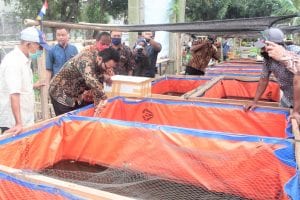
Drs. Heroe Poerwadi, MA as the Vice Major of Yogyakarta has given his appreciation according to this achievement. Accompanied by several officials, he also joins to harvest the crops such as mustard greens, corn, kale, and eggplant. “Firstly, the master plan would be created on how Blunyahrejo could become the integrated area, from agriculture, husbandry, economy, education, arts, and also culture. We hope that this model could be replicated on accross Yogyakarta so that Jogja could veggies independent. The second is to create a tourism package ‘Jajah Kampung’ which collaborates with the hotel around Yogyakarta so that the tourist could have access to the villages on Jogja.” he said. In the final part of the ceremony, Drs. Heroe Poerwadi, MA leaves a message to the people about keeping the passions and serious for maintaining the urban environment to establish food security, furthermore in this current pandemic.

